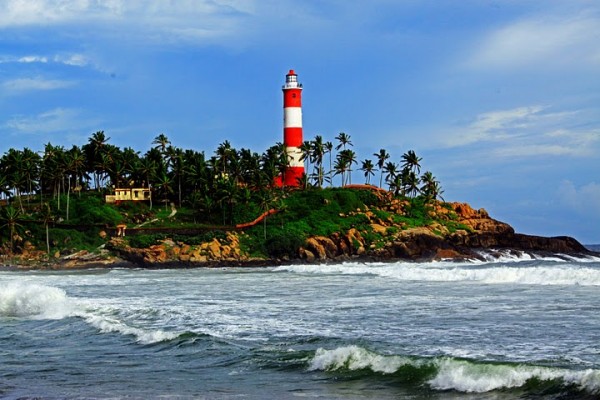Mythology and Origins
The name Guruvayur is believed to have been derived from the divine duo Guru (Brihaspati) and Vayu (the Wind God), who, according to legend, installed the idol of Lord Krishna here after retrieving it from Dwarka. Thus, the temple and the town came to be known as Guruvayur, signifying the role of these two celestial beings.
The Sacred Guruvayur Temple
At the heart of the town lies the Guruvayur Sri Krishna Temple, a revered Hindu shrine that strictly follows ancient temple customs and rituals. The idol of Lord Guruvayurappan, a form of Lord Vishnu in his Krishna avatar, is worshipped here in full grandeur.
-
The temple has four entrances, but the eastern gate is considered the primary one.
-
Non-Hindus are not allowed inside the sanctum, preserving the temple’s spiritual sanctity.
-
Apart from the main deity, there are shrines dedicated to Lord Shiva, Ganapathy, Sree Ayyappa, and Edathedathy Kavil Bhagavathy within the temple premises.
The temple is renowned for its strict observance of traditions, elaborate poojas, and special events like Ekadasi, when thousands of devotees undertake fasting and prayers.
Cultural Significance
Beyond its religious appeal, Guruvayur is a center of classical arts, temple music, and spiritual literature. The temple has supported and preserved numerous forms of devotional arts over centuries, and many traditional works of Malayalam Hindu literature trace their roots to this sacred space.
Festivals and Celebrations
One of the grandest spectacles in Guruvayur is the annual Guruvayur Utsavam, usually held during February–March. The Anayottam or elephant race, which marks the beginning of the festival, is a unique event that takes place near the eastern gate. Elephants race towards the flagpost of the temple, and the winner earns the right to carry the idol during major events for the rest of the year.
The 10-day festival is a vibrant display of Kerala’s cultural heritage, featuring:
-
Traditional music and percussion
-
Classical dance forms like Kathakali and Mohiniyattam
-
Theatrical performances based on the life of Lord Krishna
Climate and Best Time to Visit
Guruvayur experiences a tropical climate:
-
Summer (March–May): Hot and dry, with temperatures peaking around 37°C
-
Monsoon (June–September): Heavy rainfall and lush surroundings
-
Winter (December–February): Pleasant and ideal for pilgrimage, with temperatures ranging between 23°C and 30°C
The most favorable time to visit is during the cooler months, from October to February, and especially around festivals like Ekadasi, Krishna Janmashtami, and Vishu.
Things to Do in Guruvayur
-
Attend the daily rituals and see the temple elephant procession
-
Visit the Punnathur Kotta – the elephant sanctuary housing more than 50 elephants offered to Lord Guruvayurappan
-
Explore the Institute of Mural Painting, which preserves Kerala’s ancient temple art
-
Experience classical dance and music recitals held regularly in the temple courtyard
Shopping and Local Specialties
Guruvayur is not a major commercial center, but the streets near the temple are lined with small shops selling:
-
Traditional Kerala saris and gold-plated jewelry
-
Temple souvenirs, religious idols, and pooja items
-
Handmade mural paintings and embroidered handicrafts
-
Kerala spices and sweets
How to Reach Guruvayur
-
By Air: The nearest airport is the Cochin International Airport (Nedumbassery), about 65 km away, with good domestic and international connectivity.
-
By Train: Guruvayur has a small railway station, but the nearest major junction is Thrissur, located 27 km away, connected to all parts of India.
-
By Road: State-run buses and private vehicles operate regularly to Guruvayur from cities like Kochi, Thrissur, Kozhikode, Palakkad, Coimbatore, and even Bangalore. Super deluxe and air-conditioned buses are also available.
Accommodation in Guruvayur
The town offers a wide range of accommodation options, catering to both pilgrims and tourists:
-
Budget lodges and dormitories
-
Mid-range hotels with basic amenities
-
Luxury stays and temple guest houses
-
Many hotels offer early check-in to accommodate temple timings and pooja schedules.

























